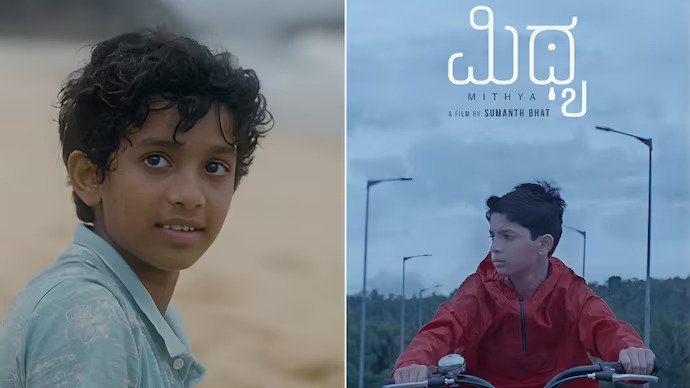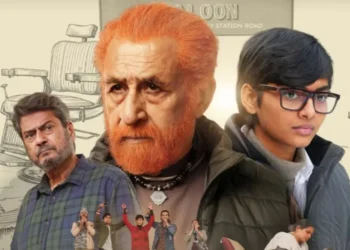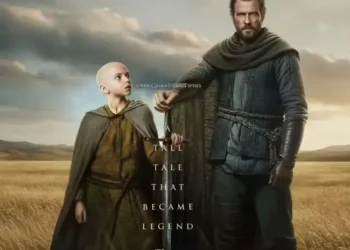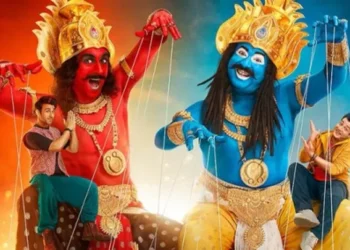Sumanth Bhat’s Mithya, produced by Rakshit Shetty and now streaming on Prime Video, isn’t just a film; it’s a hauntingly beautiful portrait of bereavement and the resilience of the human spirit. Showcased at the 15th Bengaluru International Film Festival, this 98-minute Kannada film uses the lens of an eleven-year-old boy’s life to symbolically explore the complex stages of grief, offering a deeply relatable and ultimately compassionate experience.
Story
The film opens with young Mithya (Athish Shetty) abruptly transplanted from his familiar life in Maharashtra to a new existence in Karnataka following the suspicious death of his parents, Mithya finds himself in the care of his maternal aunt (Roopa Varkady) and uncle (Prakash Thuminad).. While both relatives offer affection, it is the uncle who steps forward as a true paternal figure. He offers Mithya an immediate sense of belonging, ensuring the boy feels secure and loved in his new home. The aunt, though less outwardly demonstrative, showcases her love through practical gestures, such as buying Mithya a new bicycle to shield him from schoolyard taunts.
Mithya centers around the eleven-year-old as he grapples with the trauma of his recent past and attempts to build a new life amidst familial discord over his custody. The film delicately unveils the choices he makes and the places his heart leads him, posing profound questions about overcoming adversity and finding solace in the face of profound loss. Will Mithya succumb to his anger and grief, or will he manage to carve out a new definition of “home” for himself?
Performances
The film provides a powerful platform for its actors. Athish Shetty delivers a nuanced and deeply affecting performance as Mithya, convincingly conveying the boy’s inner turmoil and drawing the audience into his emotional landscape. Prakash Thuminad shines as the loving but sometimes short-tempered uncle, providing a necessary counterpoint to Mithya’s pain.
Behind the scenes
Despite its weighty subject matter, Mithya manages to avoid feeling heavy or bleak. Bhat’s direction and writing imbue the film with a sense of beauty, evoking compassion and understanding. The screenplay and direction masterfully reflect the various stages of grief through Mithya’s actions: his momentary escapes, impulsive decisions, suppressed anger, and relentless search for comfort. He is a wounded soul navigating a world that feels suddenly unfamiliar and unsafe.
Udit Khurana’s cinematography significantly enhances the film’s emotional impact. From capturing the stunning landscapes of Udupi to utilizing intimate close-ups to showcase Mithya’s emotions, Khurana’s contributions are both substantial and visually arresting. Midhun Mukundan’s music and Shreyank Nanjappa’s sound design work in harmony to amplify the narrative’s emotional resonance and immerse the audience in Mithya’s world.
Bhuvanesh Manivannan’s editing allows the actors and cinematographer ample space to showcase their talents. While the lingering shots contribute to the film’s emotional depth, they occasionally lead to a sense of prolonged pacing in certain scenes. The film showcases moments of brilliant collaboration between the technical departments, though at times, individual excellence trumps seamless integration.
Final Verdict
Ultimately, Mithya is an enriching experience for drama enthusiasts and cinephiles alike. Sumanth Bhat intentionally leaves the audience with lingering questions, fostering reflection and contemplation. The film stands as a powerful and poignant exploration of grief, presented through the eyes of a child, and offers a testament to the enduring power of the human spirit. It’s also a compelling example of a filmmaking style deserving of greater recognition in Indian cinema.





















